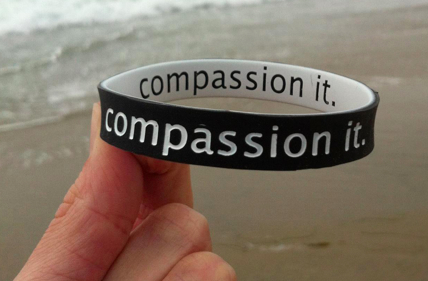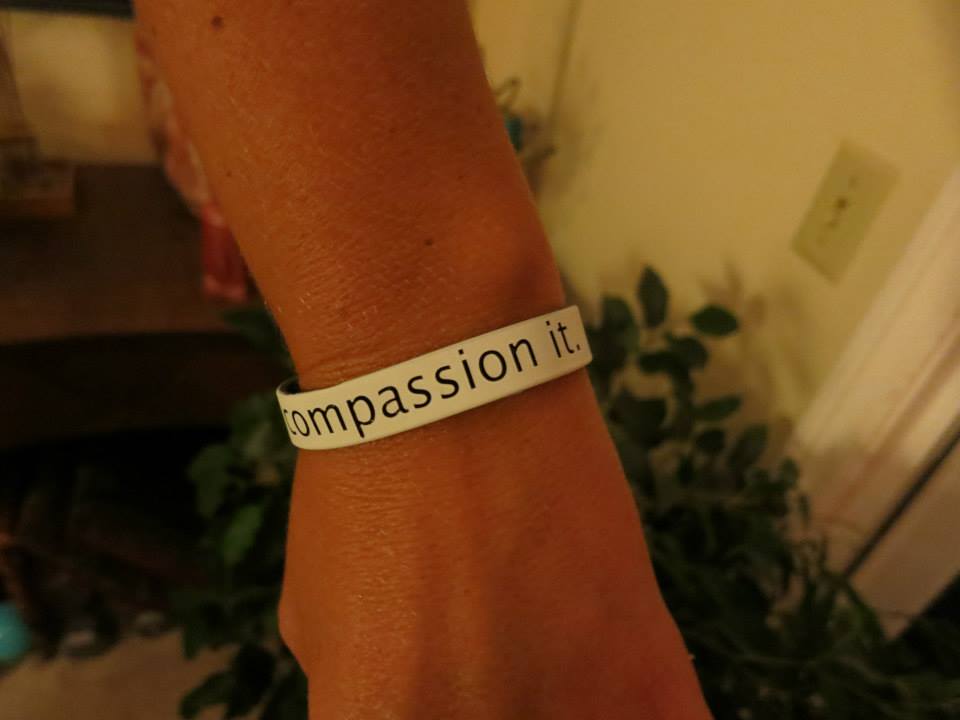Compassion It! The new social movement you'll want to join
/ Does it matter to you if you’re a good person? If so, you’ve probably noticed how good it feels to cultivate such compassion. Nonetheless, in our me-centered society, I think folks struggle with understanding what compassion means in their interactions with others and with themselves. If you’d like to increase the role of compassion in your life, I have a handy suggestion below!
Does it matter to you if you’re a good person? If so, you’ve probably noticed how good it feels to cultivate such compassion. Nonetheless, in our me-centered society, I think folks struggle with understanding what compassion means in their interactions with others and with themselves. If you’d like to increase the role of compassion in your life, I have a handy suggestion below!
First, what exactly are we talking about here…what's a good definition of compassion? I like this definition of compassion from free dictionary: “Deep awareness of the suffering of another coupled with the wish to relieve it.” So it’s not sympathy, nor pity. It’s empathy and wanting to be of service. Self-compassion is a bit trickier to define. Consider your inner thoughts and how they become focused at times on your perceived failures or flaws. Self-compassion is making a choice to give yourself a break, accept you’re human, and focus on positive feelings towards yourself. Whether towards yourself or others, choosing compassion is a gift to the world.
 Would you like to be more compassionate? Check out the bracelet reminder in the photo here. Start your day with your bracelet turned to the dark side. When you specifically do a compassionate act that day, you flip your bracelet to the white side. This is designed to raise awareness around being more compassionate to others. But with the amount of mental berating I see with my clients and friends, I think using it for self-compassion may be important too. The creators of Compassion It thought of that too, and there is now a red/white version of the bracelet specifically as a reminder for self-compassion!
Would you like to be more compassionate? Check out the bracelet reminder in the photo here. Start your day with your bracelet turned to the dark side. When you specifically do a compassionate act that day, you flip your bracelet to the white side. This is designed to raise awareness around being more compassionate to others. But with the amount of mental berating I see with my clients and friends, I think using it for self-compassion may be important too. The creators of Compassion It thought of that too, and there is now a red/white version of the bracelet specifically as a reminder for self-compassion!
I started wearing my Compassion It bracelet about three weeks ago (and by the way, if you haven’t said “Compassion It” out loud yet, you might not get how clever that name is!). I like to think of myself as a kind, caring person as I move through my day, from clients to loved ones. However, I found it harder than expected to find an opportunity to go out of my way or do something I wouldn’t normally do. This little bracelet has already changed the way I move through my day, and how I can stretch my awareness to be empathetic and kind in new ways. Imagine if everyone took this on?
 The cool thing too is that when you purchase a bracelet, it comes with a second one. The intention is that your first compassionate act is already built in when you gift your second bracelet to someone else. Clever! Actually, I think everything about Compassion It is damn clever, and I’m excited that the founder, compassion teacher Sara Schairer, lives here in San Diego. We’re lucky to have this creative mind and teacher here. :)
The cool thing too is that when you purchase a bracelet, it comes with a second one. The intention is that your first compassionate act is already built in when you gift your second bracelet to someone else. Clever! Actually, I think everything about Compassion It is damn clever, and I’m excited that the founder, compassion teacher Sara Schairer, lives here in San Diego. We’re lucky to have this creative mind and teacher here. :)
For yourself, a friend, a stranger, or fundraising for your cause, you can join the social movement for compassion here:
~Dr. Jenn Gunsaullus, San Diego, CA -- Sexologist, Sociologist, Sexuality & Mindfulness Speaker










































